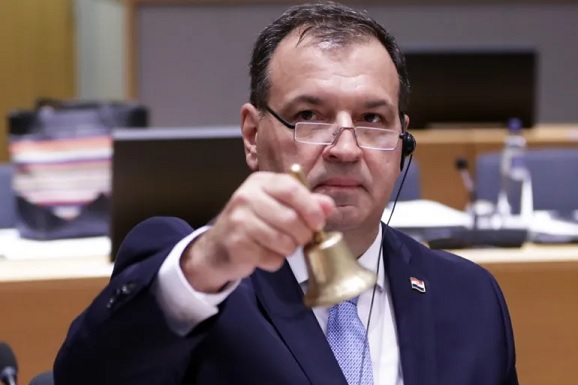Investigation Uncovers Allegations of Procurement Fraud in Healthcare System
Minister and Doctors Accused of Accepting Bribes
Croatian Health Minister Vili Beros, alongside several prominent doctors, was detained on suspicion of bribery and corruption. Authorities allege they manipulated public procurement processes to enrich themselves. The European Public Prosecutor’s Office (EPPO), responsible for safeguarding EU financial interests, initiated the investigation. This development follows earlier reports that Croatian institutions were leading the probe.
The arrests include Kresimir Rotim, head of neurosurgery at the Sisters of Mercy Clinical Hospital, and Goran Roic, director of the Zagreb Children’s Clinic. Both individuals are accused of participating in fraudulent medical equipment procurement schemes.

Public Procurement Fraud Uncovered
EPPO’s investigation revealed alleged bribery linked to the purchase of high-cost medical devices between 2022 and 2024. A significant case involves a robotic surgical device procured for 4.85 million euros by the Split Clinical Hospital, entirely funded by the EU budget. Authorities also suspect inflated purchases of operating microscopes for hospitals in Osijek and Zagreb, with Minister Beros allegedly approving these contracts in exchange for personal rewards.
Prime Minister Responds to Scandal
Prime Minister Andrej Plenkovic swiftly dismissed Beros following the arrests. Plenkovic, visibly upset, condemned the misuse of power within the healthcare system. He expressed his dismay, stating, “This situation is an act of personal betrayal.” Both Beros and Plenkovic are members of the ruling Croatian Democratic Union (HDZ), amplifying the political impact of the scandal.
The scandal exposes deep flaws within Croatia’s healthcare system, raising concerns about corruption in public service.
Temporary Leadership in Place
State Secretary Irena Hristic will oversee the Ministry of Health until a permanent replacement is appointed. Her immediate task is restoring public trust and ensuring transparency in the ministry’s operations.
This case highlights the importance of independent oversight in public institutions and the need to protect taxpayer funds from misuse. The EPPO’s involvement underscores the EU’s commitment to combating financial crimes that harm its member states.
Our Visitor






 Users Today : 40
Users Today : 40



